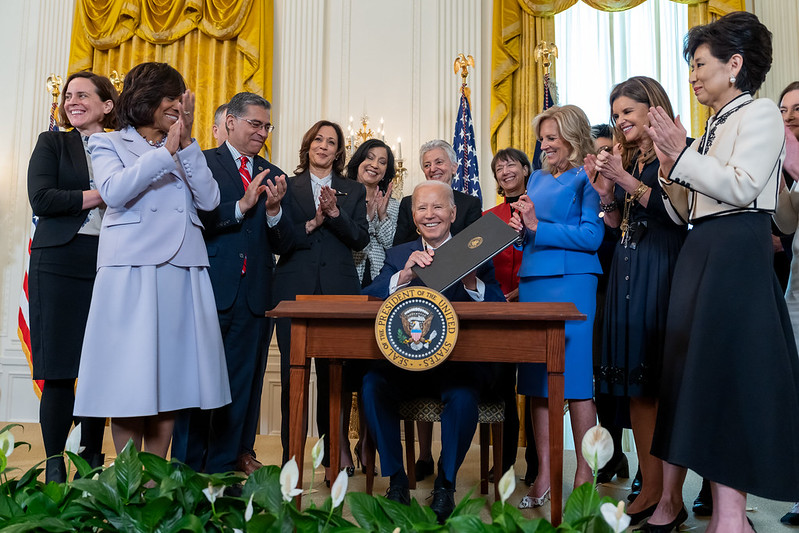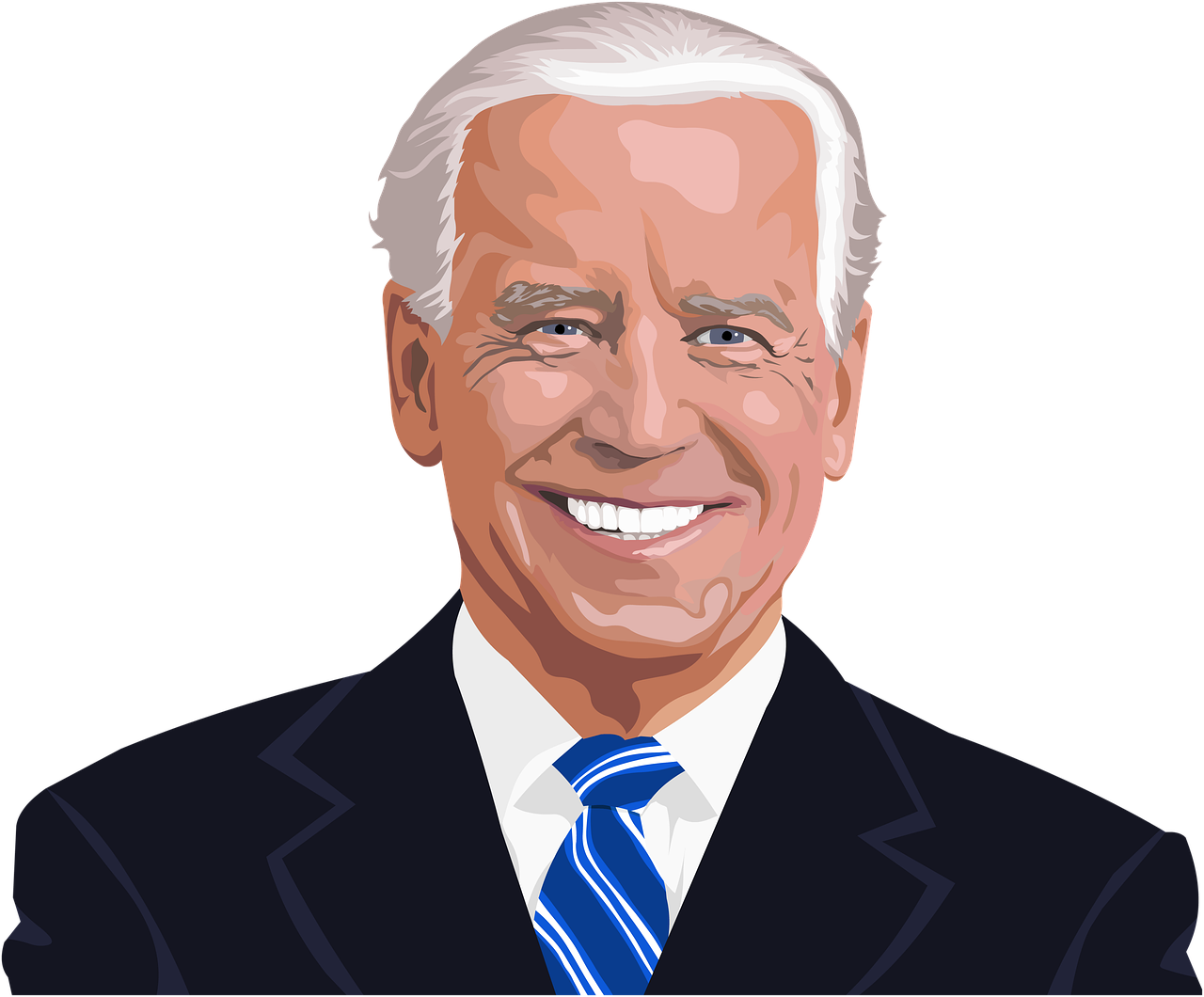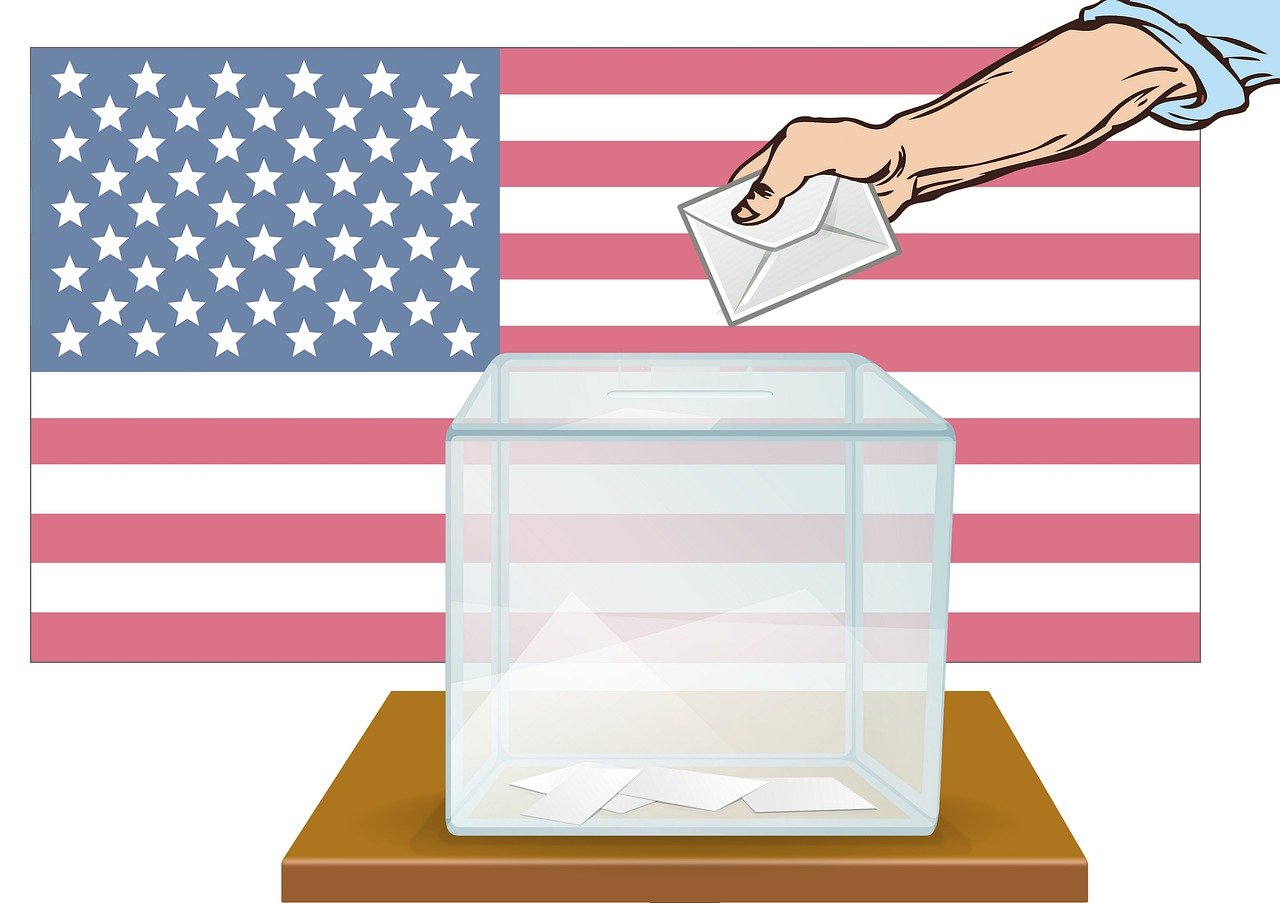
Source: Flickr Creative Commons Attribution Gage Skidmore
By now you’ve seen the headlines in the news. Now let us break down President Biden’s historic executive action on immigration and get to the nitty gritty of everything you need to know about this order designed to keep families together and provide further opportunities for Dreamers.
Process to Promote the Unity and Stability of Families – Legalization of Undocumented Spouses of U.S. Citizens
Today, June 18, 2024, President Biden announced a new process that will allow for the legalization of undocumented spouses of U.S. Citizens who have been residing in the United States for at least ten years as of June 17, 2024.
By virtue of the President’s executive authority, the Department of Homeland Security (DHS) in coordination with the U.S. Citizenship and Immigration Services (USCIS) will create a new discretionary “parole in place” program for undocumented spouses of U.S. Citizens to legalize their status while remaining in the United States.
Those who are approved after DHS’s case-by-case assessment of their application will be afforded a three-year period to apply for permanent residency. They will be allowed to remain with their families in the United States and be eligible for work authorization for up to three years.
Individuals must meet certain eligibility requirements to become lawful permanent residents (green card holders).
Below are answers to frequently asked questions regarding this executive order.
Q: What are the requirements for spouses to be eligible to apply for parole and legalize their status in the United States?
To be considered for a discretionary grant of parole in place under this process, spouses of U.S. Citizens must:
- Be present in the United States without admission or parole;
- Have been continuously present in the United States for at least 10 years as of June 17, 2024; and
- Have a legally valid marriage to a U.S. citizen as of June 17, 2024
- Have no disqualifying criminal history or otherwise constitute a threat to national security or public safety and
- Merit a favorable exercise of discretion to receive parole
Q: Are Noncitizen Children of Undocumented Spouses eligible for parole?
Yes. In addition to undocumented spouses of U.S. Citizens, their noncitizen children may also be considered for parole on a case-by-case basis under this process along with their parent, if they are:
- Physically present in the United States without admission or parole and
- Have a qualifying stepchild relationship with a U.S. citizen parent as defined by the Immigration and Nationality Act as of June 17, 2024
To qualify as a stepchild under the Immigration and Nationality Act, the noncitizen child must be unmarried, under the age of 21, and the marriage of their noncitizen parent and U.S. citizen stepparent must have taken place prior to the child’s 18th birthday.
Q: How is this new parole program different from the current laws in place?
This new “parole in place” program will eliminate the need for spouses of U.S. Citizens to travel outside of the United States to legalize their status through what is known as an extreme hardship “waiver” process.
The “waiver” process is an extremely cumbersome and lengthy process that requires the undocumented spouse to depart the United States and be interviewed and approved for an immigrant visa overseas. Only once the visa is issued can the applicant return to the United States.
This process has unnecessarily torn families apart and created much fear and uncertainty among applicants forced to remain away from their families for prolonged periods of time. Many applicants are the sole providers for their families and take care of children with disabilities, making this process extremely difficult to bear.
This executive action will instead open a pathway to permanent residence by allowing eligible undocumented spouses of U.S. Citizens to adjust their status to permanent residence while in the United States, without requiring them to depart the country.
Continue reading
 In a shocking turn of events, the Biden administration recently announced that it will not be renewing humanitarian parole protections for nationals of Cuba, Haiti, Nicaragua, and Venezuela. The CHNV parole program was first launched in October of 2022 to discourage illegal border crossings.
In a shocking turn of events, the Biden administration recently announced that it will not be renewing humanitarian parole protections for nationals of Cuba, Haiti, Nicaragua, and Venezuela. The CHNV parole program was first launched in October of 2022 to discourage illegal border crossings. Visa Lawyer Blog
Visa Lawyer Blog









